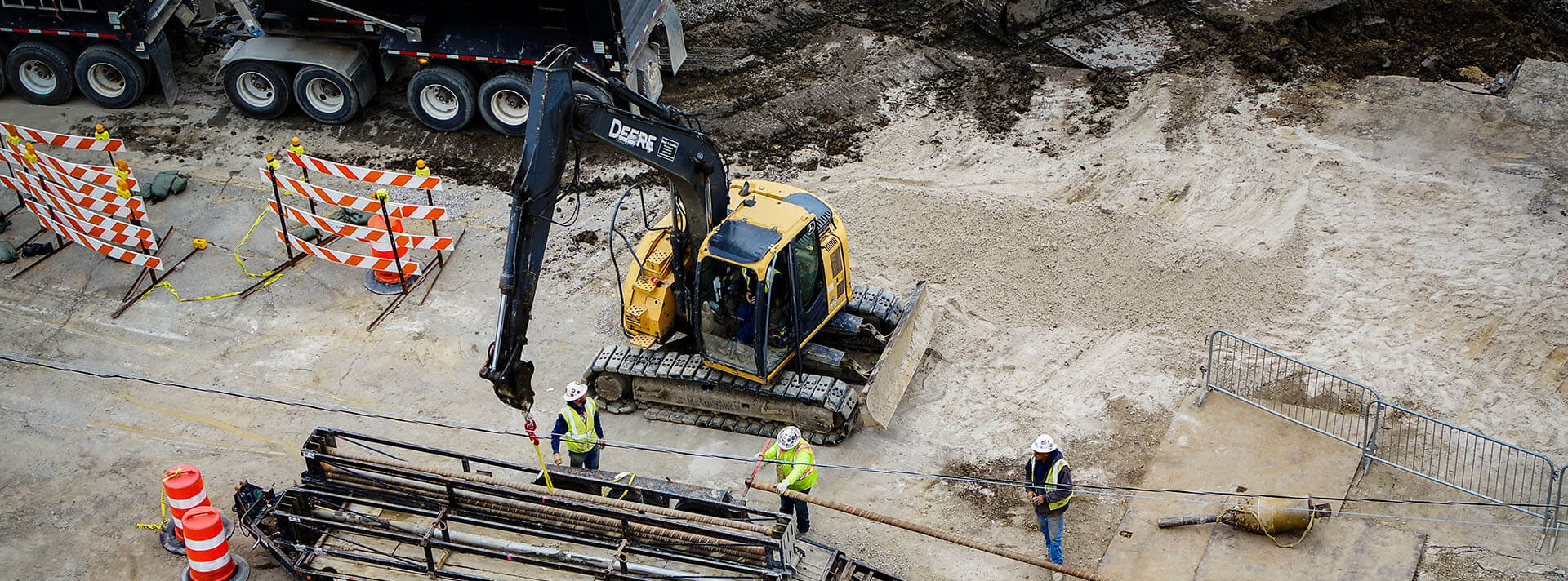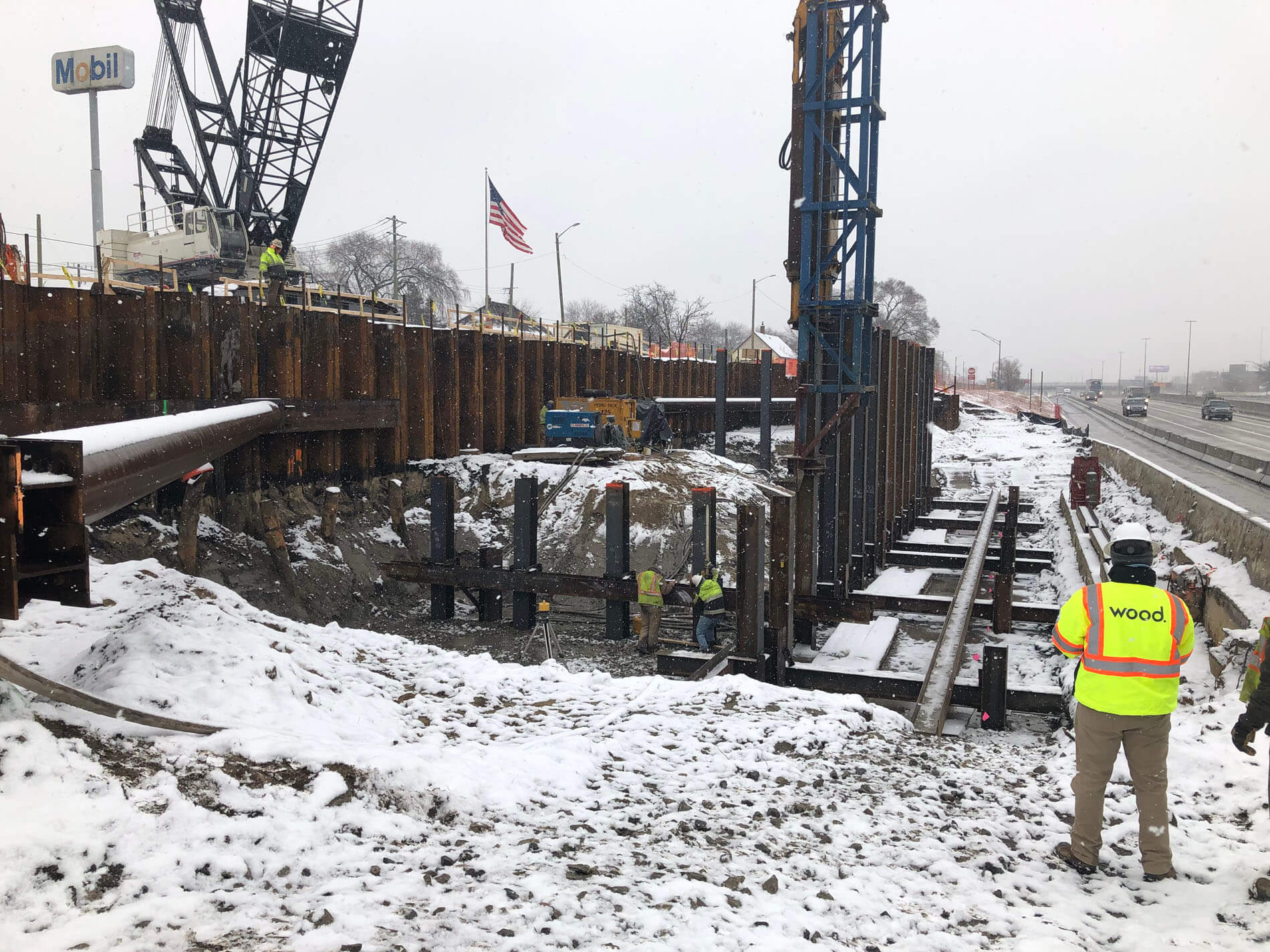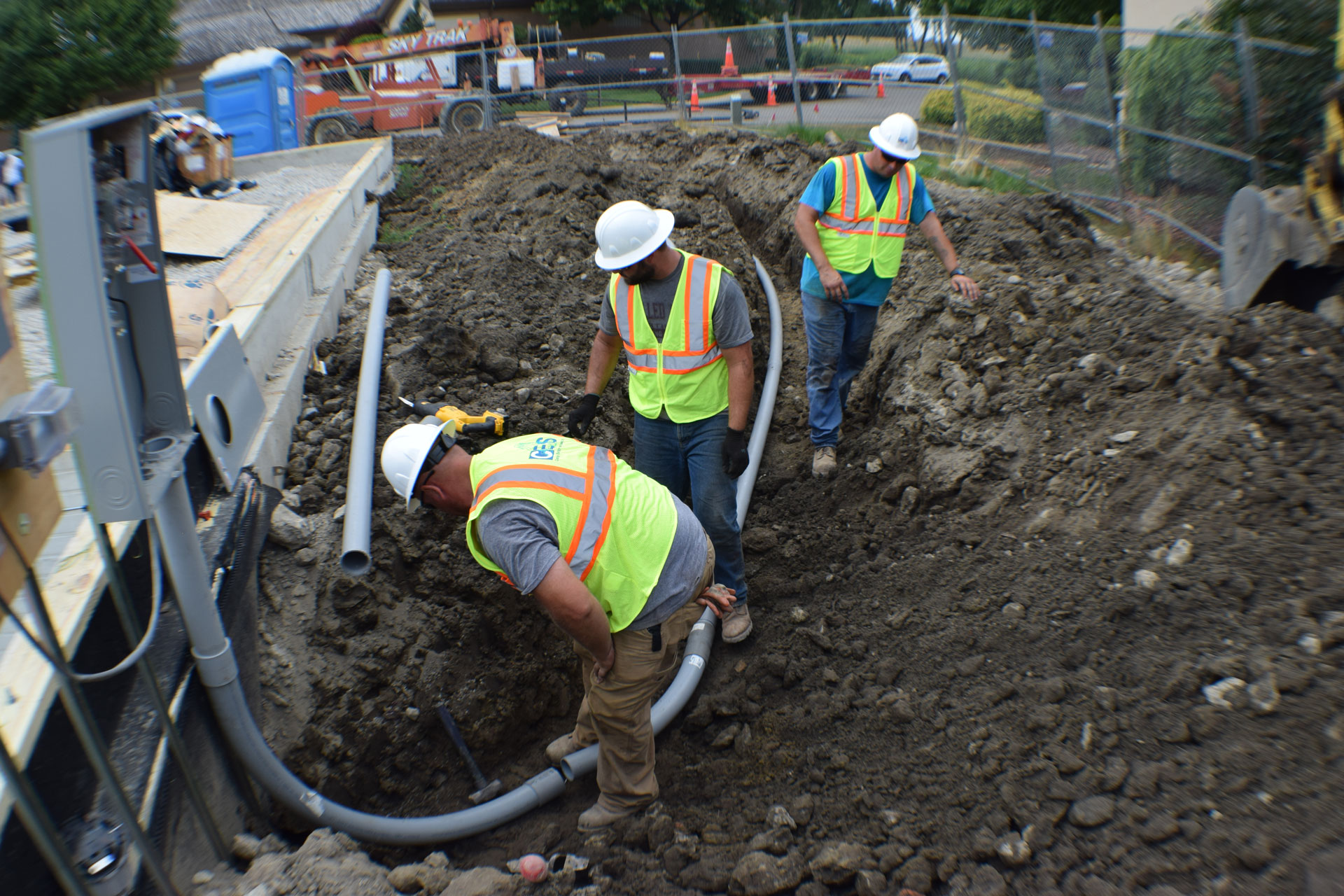Getting Your Project to the Finish Line - On time - Every Time
MES has successfully managed thousands of projects for utility clients across the U.S. We maintain a variety of contracts, ranging from fixed price to – multi-year blanket agreements with clients in the private, utility, and public works sectors.
Our purpose is to turn your vision into a reality. To do this, we focus on sound management of project funds, quality assurance and control, realizing cost savings, and minimizing risk. We work closely with our clients, providing the in-depth focus you would expect from a small consulting firm combined with the resources and cross-disciplinary expertise of a large regional company.
Our Process
Our team of certified Project Management Professionals has developed a proven project management methodology to deliver consistent results within the project scope, schedule, and budget.
Every critical aspect of our projects is monitored and tightly controlled through weekly earned value management reporting (on the Cost Performance Index and Schedule Performance Index), and the MES Change Management Plan ensures the proper tools for tracking potential project changes are in place.
Planning, Scheduling, Management, and Technology
For high-level project scheduling, we use Primavera P6 and MS Project software. Project schedules are logic-driven and resource-loaded using the Critical Path Method (CPM) — a network diagramming technique where relationships and dependencies drive the sequence in which activities are to be carried out. The end product is a time-scaled network printed in bar chart format (GANTT), program evaluation review technique (PERT) format, or time-phased format (TSL).
We use our own solutions (developed in-house) for real-time data and completion information. These systems are accessible from anywhere our crews might be working so they can be constantly updated as the project unfolds. We use tablets and smartphones to record and report project completion data onsite. Our tablets are also equipped with a customized Esri-based application for recording geospatial data, which is later converted into as-built mapped data and used to automate the invoicing process. This data provides a major boost to Quality Assurance (QA) and Quality Control (QC).
We also use GPS tracking devices installed on our vehicles and heavy equipment to monitor equipment locations, drive times, and speed to minimize the operating and maintenance costs of our equipment. We are currently working on expanding the capabilities of our mobile technology to project inspection checklists and manhole entry and inspection forms to improve record keeping and boost efficiency.
Safety
We use the same mobile technology for health, safety, and environmental (HS&E) compliance audits and to disseminate critical safety information to field crews, including Safety Data Sheets (SDS) required by OSHA and MIOSHA rules and regulations.
It’s Not All About Technology: It’s about people too
While technology has helped us manage our operations more efficiently, it’s our employees and project management leadership that make the most difference. Our project managers are experienced leaders with the know-how required to manage a diverse workload and workforce.
We know our people are effective and skilled at what they do because we track performance using a comprehensive Quality Management Plan (based on the MES QA/QC Manual developed internally). Adherence to the plan is checked via:
- Daily job briefings
- HS&E site audits
- Quality inspections
- Work process aids
- Work process checklists
- Employee training
Data from our QA/QC efforts is reviewed by our executive and management teams to ensure any issues or discrepancies are addressed immediately. Over the years, these reviews have helped us significantly improve our processes and overall performance.
Need Project Management Expertise? Contact MES for Help With:
Contact us today to get started.
- Project planning, definition, and management
- Project design criteria and oversight
- Design and construction schedules and cost estimates
- Constructability review and value engineering
- Permit acquisition
- Construction administration, management, and inspection
- Transition management



